English Edition

- By CNI
- Category: English Section
- Hits: 221
CNI News
31 December 2025
The Chairman of the Shan and Nationalities Democratic Party (SNDP), U Sai Aik Pao, told CNI News that he is dissatisfied with the recently concluded Phase 1 of the election and feels that it was conducted unfairly.
In Myanmar, Phase 1 of the election commenced on December 28, 2025. Phase 2 is scheduled for January 11, 2026, and Phase 3 for January 25, 2026.
U Sai Aik Pao expressed his lack of satisfaction regarding the first phase of the multi-party democratic general election.
"I am not satisfied. There was a massive influx of advance votes, while the number of people actually coming out to vote was low. Furthermore, there was no transparency regarding these advance votes; parties were not invited to witness the process. Right now, the situation with advance votes is very messy. I simply feel that there is no fairness," said U Sai Aik Pao.
Despite inquiries regarding the number of eligible advance voters and the total number of advance ballots cast, the Union Election Commission (UEC) has neither released official data nor provided answers.
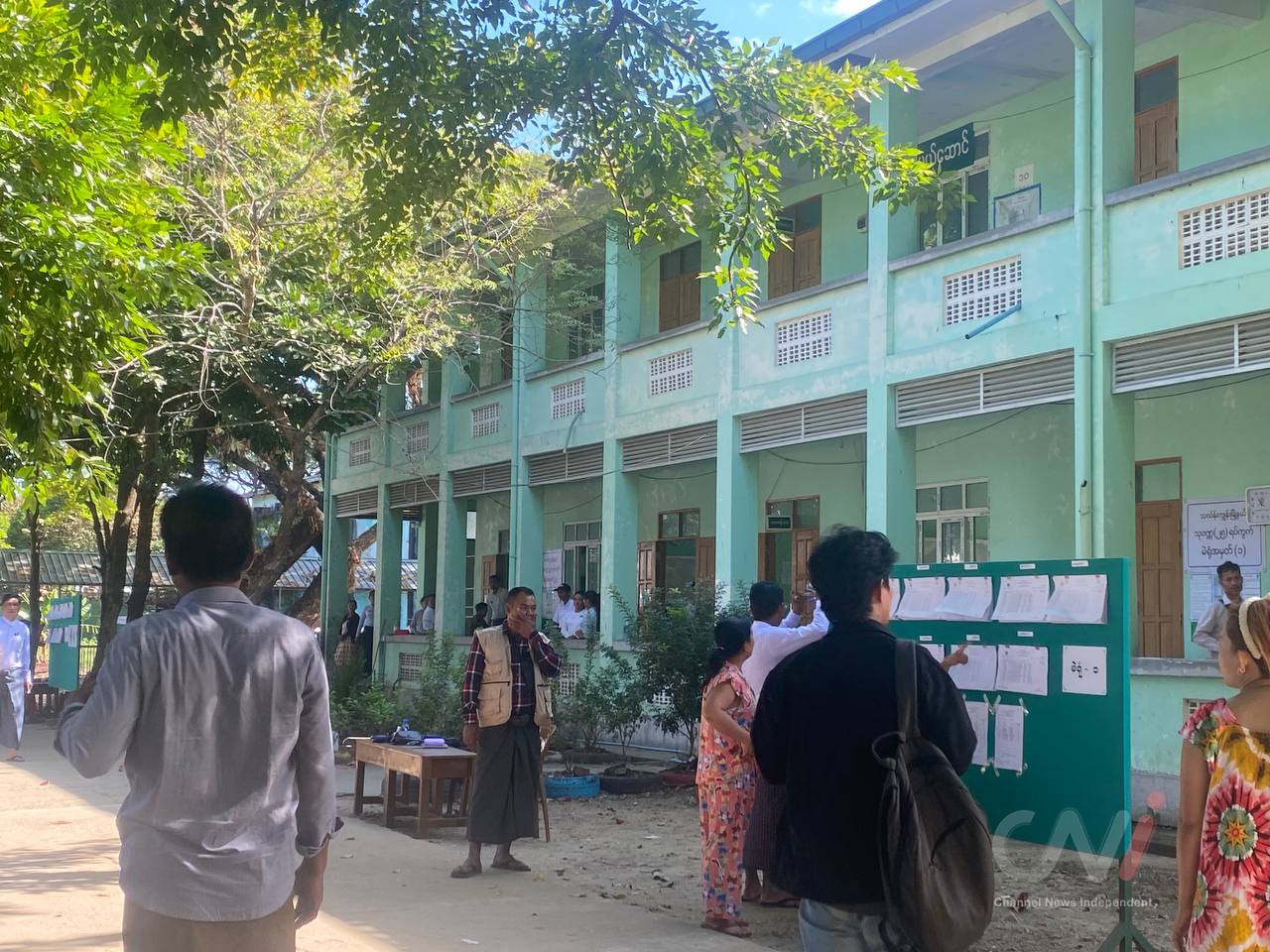
People checking lists to cast their votes.
Daw Nant Khin Aye Oo, Chairwoman of the Karen People's Party (KPP), told CNI News that public voter turnout was very weak and the process was unsatisfactory, leading many voters to lose their right to vote.
"From what I know, the turnout was very low. To be frank, there were hardly any people. This is due to a lack of technical expertise and the fact that different areas were following different formats—it was inconsistent. There were also many difficulties on the ground. For instance, ethnic voters have been unable to vote for their respective Ethnic Affairs Ministers; this happened in 2010, 2015, 2020, and now again in 2025.
Regarding the public, many found their names on the first preliminary voter list, but by the second list, they were gone. They reported this to the UEC with their IDs and were told they would be on the third list, but they were still missing. I believe this is a result of incompetence. Many errors are surfacing in the current operations. So many people couldn't vote. These are major human's weaknesses," she said.
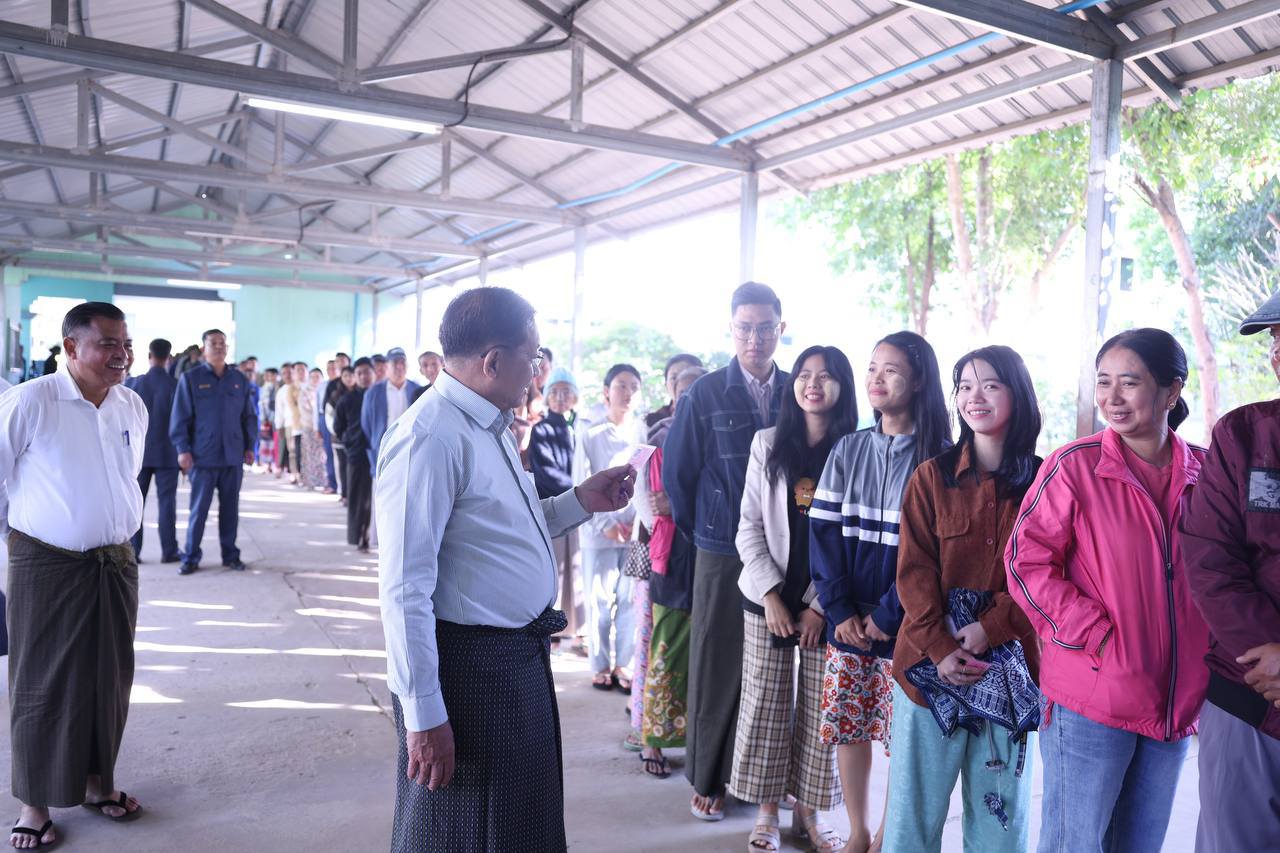
Senior General Min Aung Hlaing meeting with those who were about to vote
Revolutionary forces have issued statements urging the public not to vote or participate in the military-organized election, warning that effective action will be taken against those who collaborate. Consequently, many citizens faced difficulties casting their ballots due to security fears.
Conversely, some voters whose names were on the list were torn between whether to vote or not. They feared that if they stayed away for security reasons, authorities might cause trouble for them later, given that Ward Administrators hold all their household registration data.
As of now, it is reported that in the Phase 1 elections held on December 28, 2025:
The Union Solidarity and Development Party (USDP) has claimed victory in 80% of constituencies nationwide.
The USDP has reportedly won all seats in the Yangon Region and the Nay Pyi Taw Council Area.

- By CNI
- Category: English Section
- Hits: 239
CNI News
31 December 2025
Military and political observers are analyzing how the current Acting President, Commander in Chief Senior General Min Aung Hlaing, might be nominated for the office of the President once the parliament (Hluttaw) is formed following the Myanmar elections.
In the multi-party democratic general elections held in 2010, 2015, and 2020, three individuals were nominated for the presidency: one by the Pyithu Hluttaw (Lower House), one by the Amyotha Hluttaw (Upper House), and one by the Military.
The parliament then decides among these three candidates. According to Colonel Khun Okkar, Chairman of the Pa-O National Liberation Organization (PNLO-NCA/S), historical election trends show that the nominee from the Pyithu Hluttaw (Lower House) usually becomes the President.
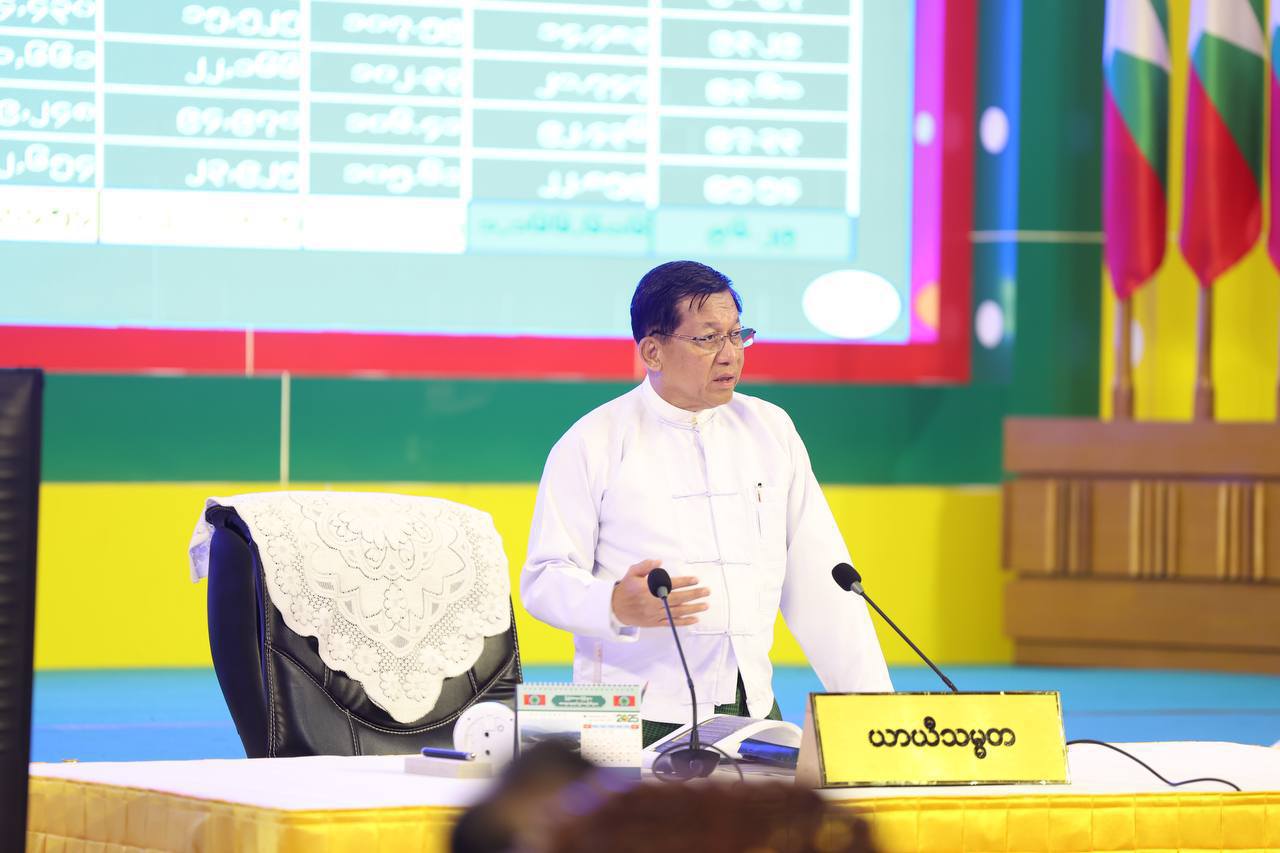
Senior General Min Aung Hlaing.
He suggested that a majority of representatives in the Pyithu Hluttaw would likely approve and nominate Senior General Min Aung Hlaing for the presidency.
Colonel Khun Okkar explained the typical breakdown as follows:
Pyithu Hluttaw Nominee: Usually becomes the President.
Amyotha Hluttaw Nominee: Usually becomes a Vice President (often representing ethnic nationalities, such as former VPs Sai Mauk Kham or Henry Van Thio).
Military Nominee: Usually becomes Vice President (1).
"While three departments nominate three names, the person nominated by the Pyithu Hluttaw is most likely to become the President. Traditionally, the Military's nominee becomes Vice President. We cannot say for certain if the Military will nominate Senior General Min Aung Hlaing, but even if they do, he would likely be a Vice President under that process. I believe the Pyithu Hluttaw will be the one to nominate him. With the 25% MPs from the military already there, combined with the majority party in the Pyithu Hluttaw, the person nominated by that majority has the highest potential to become President," said Colonel Khun Okkar.
When Senior General Min Aung Hlaing cast his vote in Nay Pyi Taw during Phase 1 of the election on December 28, media outlets asked whether he would take the presidency after the election.
He responded by stating that he is the Commander-in-Chief of the Defense Services and a civil servant, not a political party leader; therefore, he cannot simply say he "wants" to be President. He noted that the presidential selection process would only occur when the parliament is convened, and that would be the appropriate time to speak on the matter.
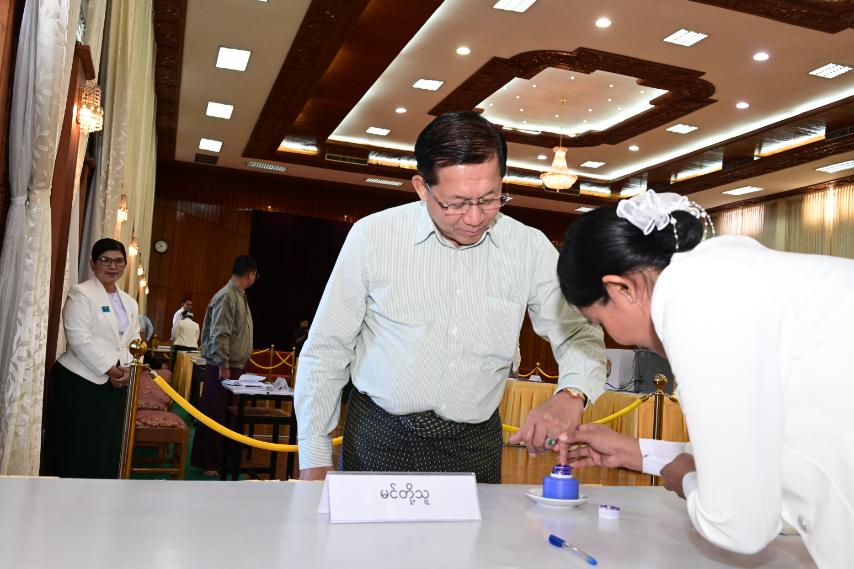
Senior General Min Aung Hlaing.
Dr. Hla Kyaw Zaw, an observer of China-Myanmar affairs, told CNI News that the presidency is a personal goal for the Senior General, and he is likely to pursue it by any means necessary.
"He might be staying quiet because he isn't certain yet, or he might just be waiting to announce it when the time comes. During the 2020 election, he made various claims about the people's choice before the coup. Even now, while he says it can only be discussed after the election, he will likely take the presidency if he wants to. His words aren't entirely reliable. Since becoming President is his personal ambition, he will definitely make it happen. We have to wait and see what methods he uses to make it look acceptable to the public," Dr. Hla Kyaw Zaw said.
Phase 1 of the multi-party general election was held on December 28. The Union Solidarity and Development Party (USDP) is reportedly winning in the majority of constituencies nationwide, bolstered by a strong lead in advance votes.
Although all phases of the election are not yet complete, political and military analysts point out that the policies of the new government are unlikely to change and will likely follow the current path laid out by the Commander-in-Chief.

- By CNI
- Category: English Section
- Hits: 315
CNI News
30 December 2025
The election held in Myanmar is a result of an agreement between Acting President Senior General Min Aung Hlaing and Chinese President Xi Jinping, according to Mr. Deng Xijun, the Chinese Special Envoy who arrived as an election observer.
The first phase of Myanmar’s election was held on December 28, 2025. International monitoring teams from countries including China (led by Mr. Deng Xijun), India, Russia, Belarus, Thailand, Cambodia, and Vietnam were sent to observe the process.
Mr. Deng Xijun stated, "I believe that implementing these elections is a realization of the agreements and friendship established between our President Mr. Xi Jinping and Acting President Senior General Min Aung Hlaing."
Senior General Min Aung Hlaing met with Chinese President Xi Jinping twice in 2025:
May 9, 2025: Their first meeting took place in Moscow, Russia.
August 30, 2025: Their second meeting took place in Tianjin, China.
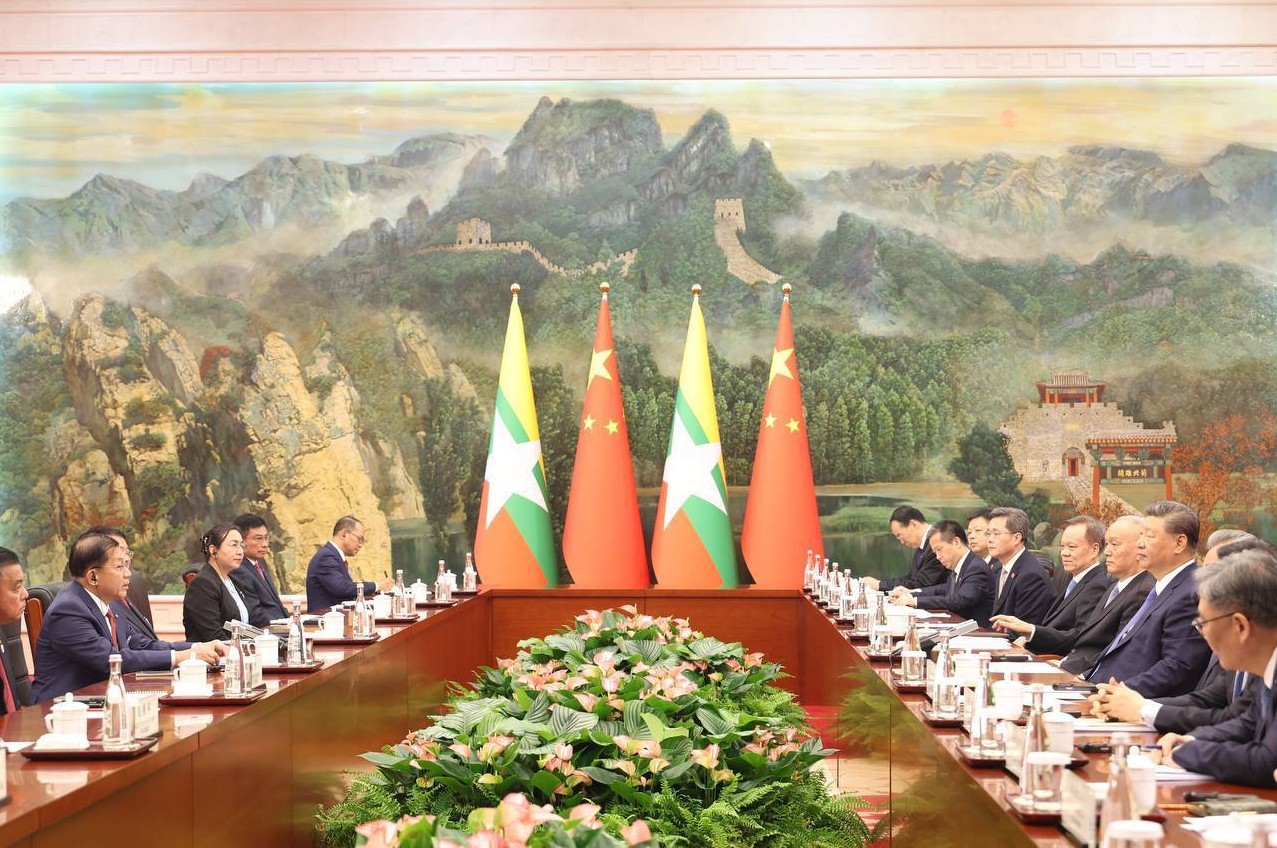
Senior General Min Aung Hlaing and President Xi Jinping seen together.
Mr. Deng Xijun noted that based on their observations, the election process appeared generally smooth and successful.
"China and Myanmar are engaged in extensive cooperation, and we are aware that China is providing significant support to Myanmar. Yesterday, we visited six polling stations in Nay Pyi Taw. During our observation, we found everything to be generally in good order. The polling station preparations and operations were systematic and excellent. We saw that careful arrangements were made to ensure a peaceful environment for voters," said Mr. Deng Xijun.
He added that during the visits, they observed voters waiting securely and calmly to cast their ballots.
While the first phase of the election took place on December 28 and international observers visited stations in Nay Pyi Taw and Yangon, the period was marked by significant conflict.
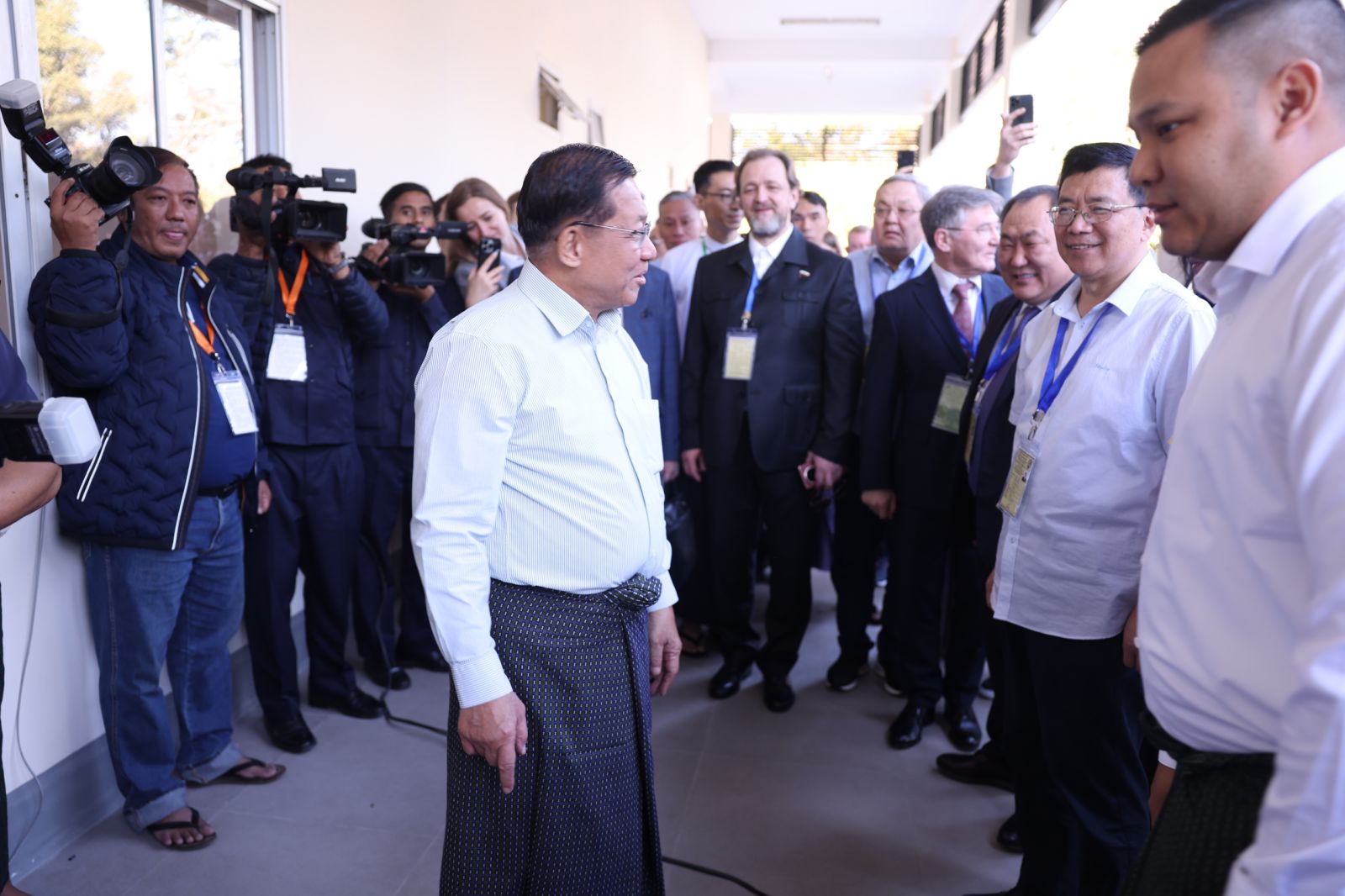
Senior General Min Aung Hlaing and Mr. Deng Xijun seen together.
On December 27 and 28, eleven towns—including Mandalay, Myitkyina, Sagaing, Shwebo, Monywa, Katha, Nyaung-U, Myingyan, Madaya, Myawaddy, and Loikaw—came under attack from drone bombs, rockets, and heavy weaponry.
Additionally, PDF forces reportedly conducted inspections on the Yangon-Mandalay Expressway, and on December 28, KIA-PDF joint forces launched an offensive to seize the town of Katha.
The remaining phases of the election are scheduled as follows: Phase 2: January 11, 2026, Phase 3: January 25, 2026.

- By CNI
- Category: English Section
- Hits: 232
CNI News
30 December 2025
Colonel Khun Okkar, Chair of the Pa-O National Liberation Organization (PNLO-NCA/S), told CNI News that a round of political dialogue may emerge after the election as a means to resolve the ongoing armed conflicts and political crisis in Myanmar.
Myanmar held the first phase of the 2025 general election on December 28, 2025, and the second phase will be held on January 11, 2026, followed by the third phase on January 25, 2026.
Afterward, state power will be transferred to the political party that wins the election, and the military will return to performing only national defense duties, according to Senior General Min Aung Hlaing.
Colonel Khun Okkar explained to CNI News that depending on the laws enacted by the new parliament after the election and the policies implemented by the future government, a situation may develop in which political dialogue and coordinated negotiations once again take place.
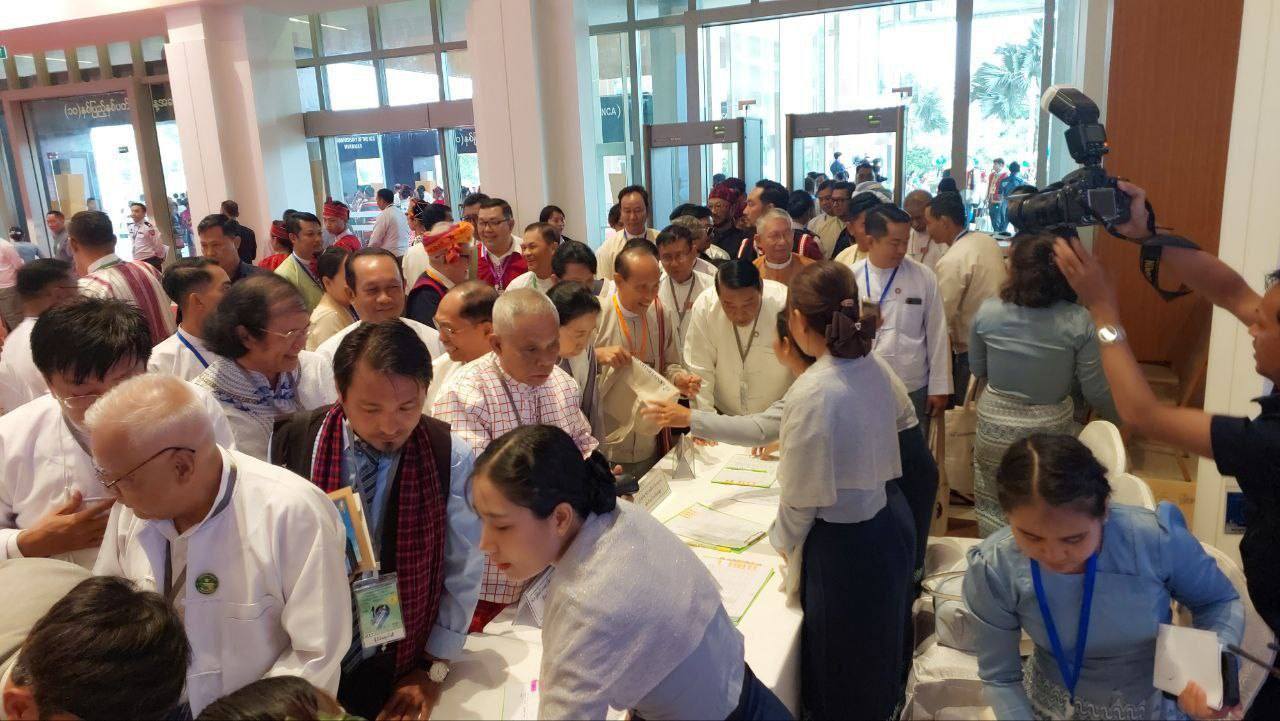
Political party representatives and leaders of armed groups seen together
He said: “Whatever happens after the election — whether it’s the circumstances created from Naypyidaw, or the developments being formed outside, or the position of the NUG — if we look at all of them, depending on the laws that will be enacted by the parliament formed after the election and the laws that will be implemented by the government, a culture of dialogue may emerge. During U Thein Sein’s era, we first began to see the culture of dialogue.We carried it forward into Daw Suu’s administration, and for over ten years we experienced a culture of dialogue.Within that culture of dialogue, peace architects began to emerge — those who develop the framework for building peace.When all dialogues were directed toward peace, peace architecture became visible.Therefore, I think that within a new political landscape, new policies and new approaches can be introduced, even though the people involved may be the same individuals.Once those policies are introduced, we need to watch carefully.If we can observe until around mid-2026, we will be able to say what direction things might take.At the moment, it’s still a little early.”
Political parties and analysts say that the new government formed after the election will need to be flexible, decisive and take strong action to pursue long-lasting peace.
They point out that in the political landscape emerging after the election, peace should be prioritized, because without peace, no matter how much development is attempted, it will not succeed.
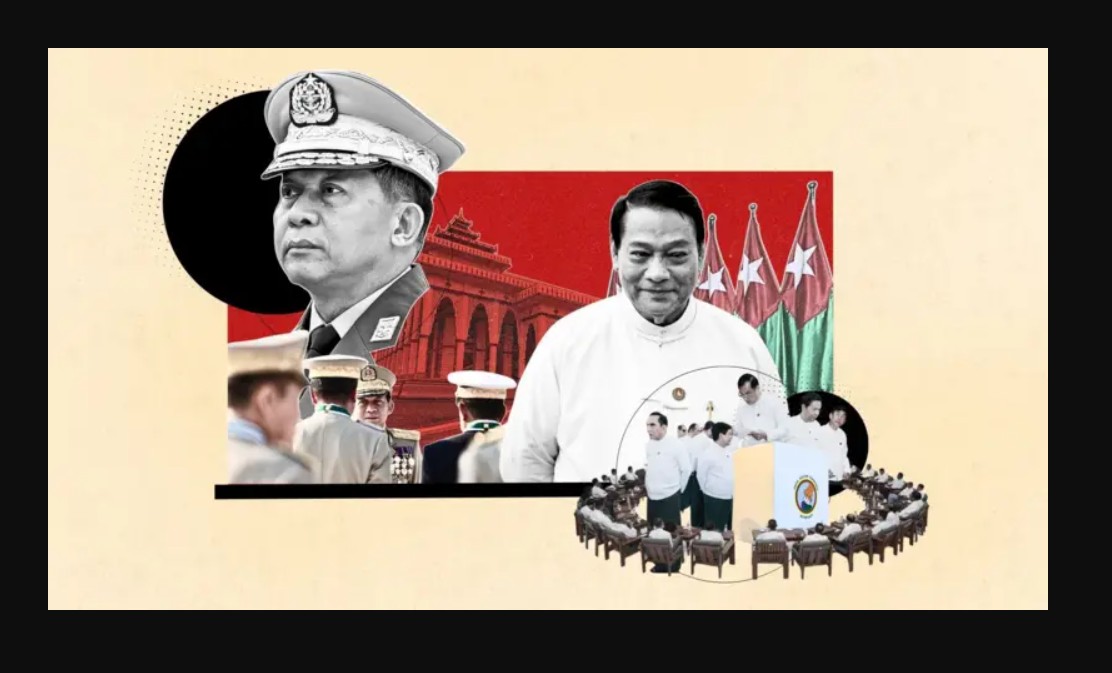
USDP Chair U Khin Yi and Senior General Min Aung Hlaing seen together
Daw Nan Khin Aye Oo, Chair of the Karen People’s Party (KPP), told CNI News: “The current administration intends to continue working toward peace.But it’s hard to say how the other side will respond.Considering the present situation, there is not much to be optimistic about.However, the responsibility of the incoming government is to strive for achieving peace — without peace, development will not work no matter what.We need to work toward peace.How many groups will participate depends on how much trust those groups have in the new government.I think it won’t happen quickly — it will have to be built step by step.”
Senior General Min Aung Hlaing, Chair of the National Defence and Security Council, has said that state power will be transferred to the political party that wins the election.
Military and political analysts say that in the upcoming election, the Union Solidarity and Development Party (USDP) is expected to win the most constituencies and form the government, and that the military may take the lead in forming the new administration.

- By CNI
- Category: English Section
- Hits: 326
CNI News
30 December 2025
In Mon, Rakhine, and Karen States, ethnic political parties appear to have shown strength in the Phase (1) election results, while there are also areas where the Union Solidarity and Development Party (USDP) performed strongly, party officials told CNI News.
In Rakhine State, where elections were held in three townships, the USDP is leading in Sittwe Township, while the Arakan Front Party (AFP) is leading in Mrauk-U Township, AFP Chairman Dr. Aye Maung told CNI News.
He said, "Generally, in Sittwe, the USDP is leading. In Manaung, our AFP is leading. In Kyaukphyu, AFP is leading in both the Amyotha luttaw and the Pyithu Hluttaw. However, the USDP has received a lot of advance votes there. That could allow them to change the election result like in Sittwe."
In Karen State, where elections were held in three townships, although the USDP, Karen National Democratic Party (KNDP), and Phalon-Sawaw Democratic Party all have significant support, the USDP currently leads with the most votes, while the KNDP is in second place, KNDP Chairman Mann Aung Pyi Sone told CNI News.
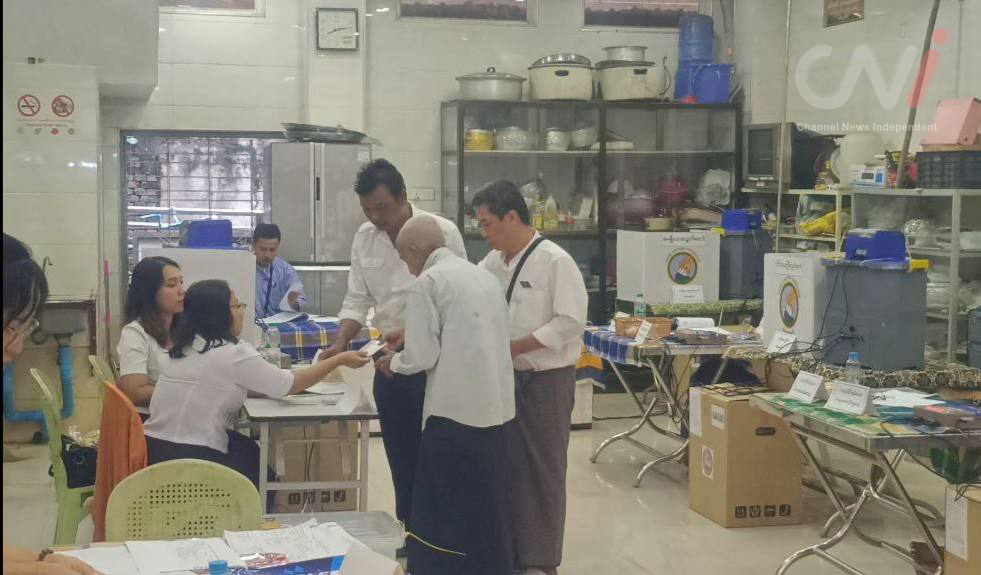
Voters casting ballots
He added that this outcome was expected in advance.
Mann Aung Pyi Sone said, "We had already expected the results to be like this. Because our parties are small. Also, due to the limited campaigning time, our outreach wasn’t as strong. So when competing with the major parties, expectations were naturally low. In our state, we also have the PPP and the Kyarr Phyu Party competing. They are nationwide parties, but they didn’t get many votes — only about two digits. In Karen State, our Karen ethnic parties — KNDP, Phalon-Sawaw, and USDP — are the three main competitors. But overall, the USDP won by a small margin."
In Mon State, where five townships took part in Phase (1), the Mon Unity Party (MUP) is currently leading in both Amyotha and Pyithu Hluttaw seats in Chaungzon Township. The results for other townships are not yet known, party spokesperson Naing Than Shwe told CNI News.
He said that since polling stations could not open in some villages in these five townships, the MUP could not compete effectively in areas where it is usually strong.
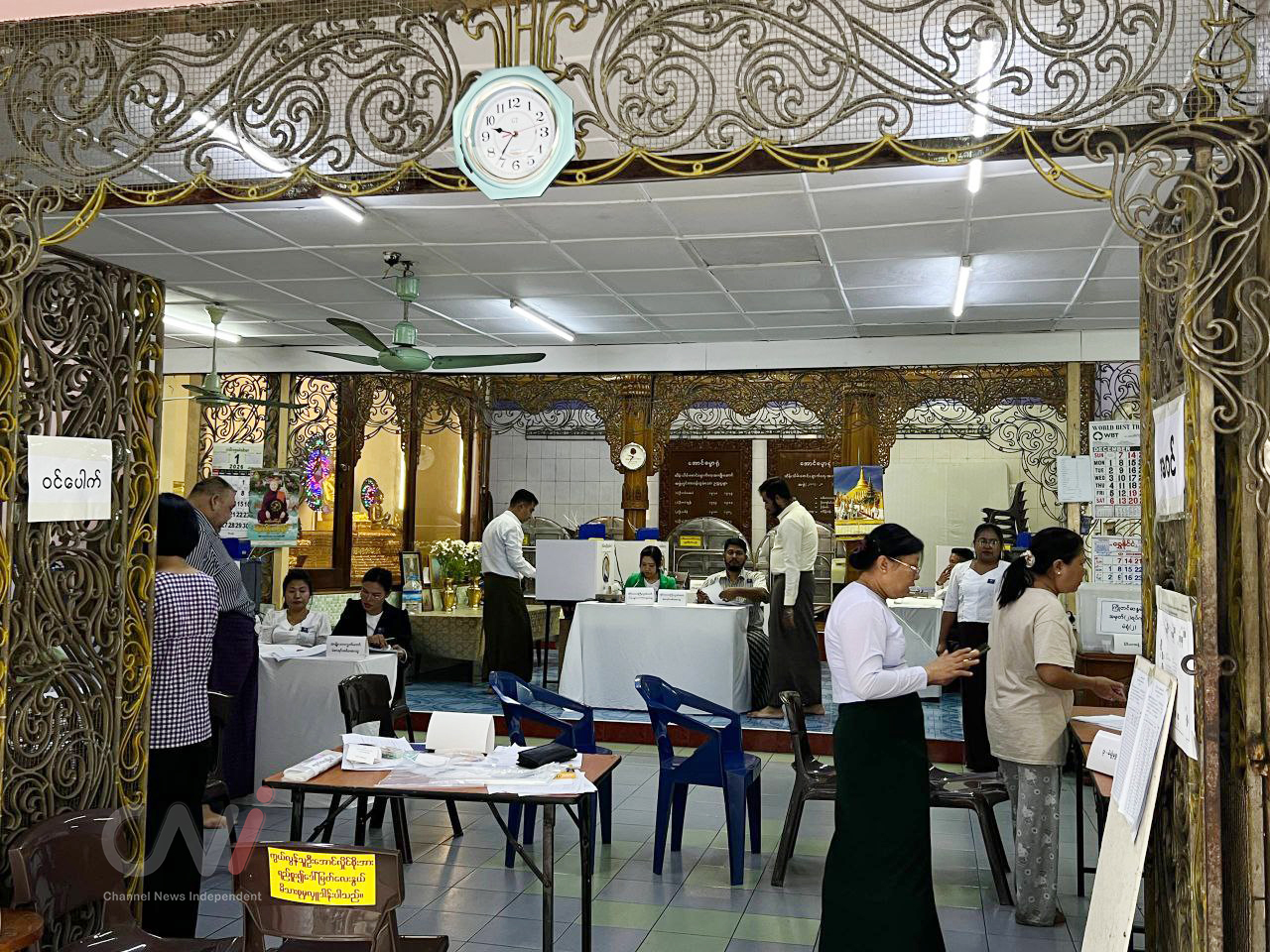
Voters casting ballots
Naing Than Shwe said, "In Phase (1), all constituencies in Chaungzon Township were included, and polling stations in Chaungzon and Mawlamyine were fully open. However, polling stations could not open in some villages in Kyaikmaraw Township. Without those polling stations, we couldn’t compete in our strong areas."
The Phase (1) multi-party democratic general election, held on December 28, 2025, took place in a total of 102 townships. Party officials from Mon, Rakhine, and Karen States said voter turnout in these states was satisfactory.
Current nationwide election results show that the USDP is leading with the highest number of votes nationwide.

How should the appointment of Chief Ministers under Section 261 of the 2008 Constitution be relaxed?
- By CNI
- Category: English Section
- Hits: 211
CNI News
30 December 2025
In Myanmar, Section 261 of the 2008 Constitution grants the President the authority to directly appoint Chief Ministers of Regions and States. Political parties are pointing out how this situation should be relaxed in order to build a democratic and federal Union.
U Naing Than Shwe, spokesperson of the Mon Unity Party (MUP), told the CNI news agency that if the President appoints the Chief Ministers and the regional/state assembly only confirms them, that situation amounts to centralization of power.
He said “We’ve talked about amending the law regarding the appointment of Chief Ministers. But amendments can only happen once the matter reaches Hluttaw. In practice, amendments can only be made through the parliamentary process — submitting motions and following the necessary procedures. Direct appointment by the President leads to increased centralization. If Chief Ministers were to be elected by the regional/state parliaments, that would be much closer to federalism. If the President appoints while the parliament merely confirms, that is still centralization. It depends on the policies of the ruling President. Under Sections 261 and 262, the President selects and appoints Chief Ministers, and then the parliament confirms them. If the President softens his stance and says, ‘I will appoint the Chief Minister chosen by your parliament,’ then it depends on the President’s approval. How will the law be amended in parliament? And even if the President agrees, obstacles may still arise.”
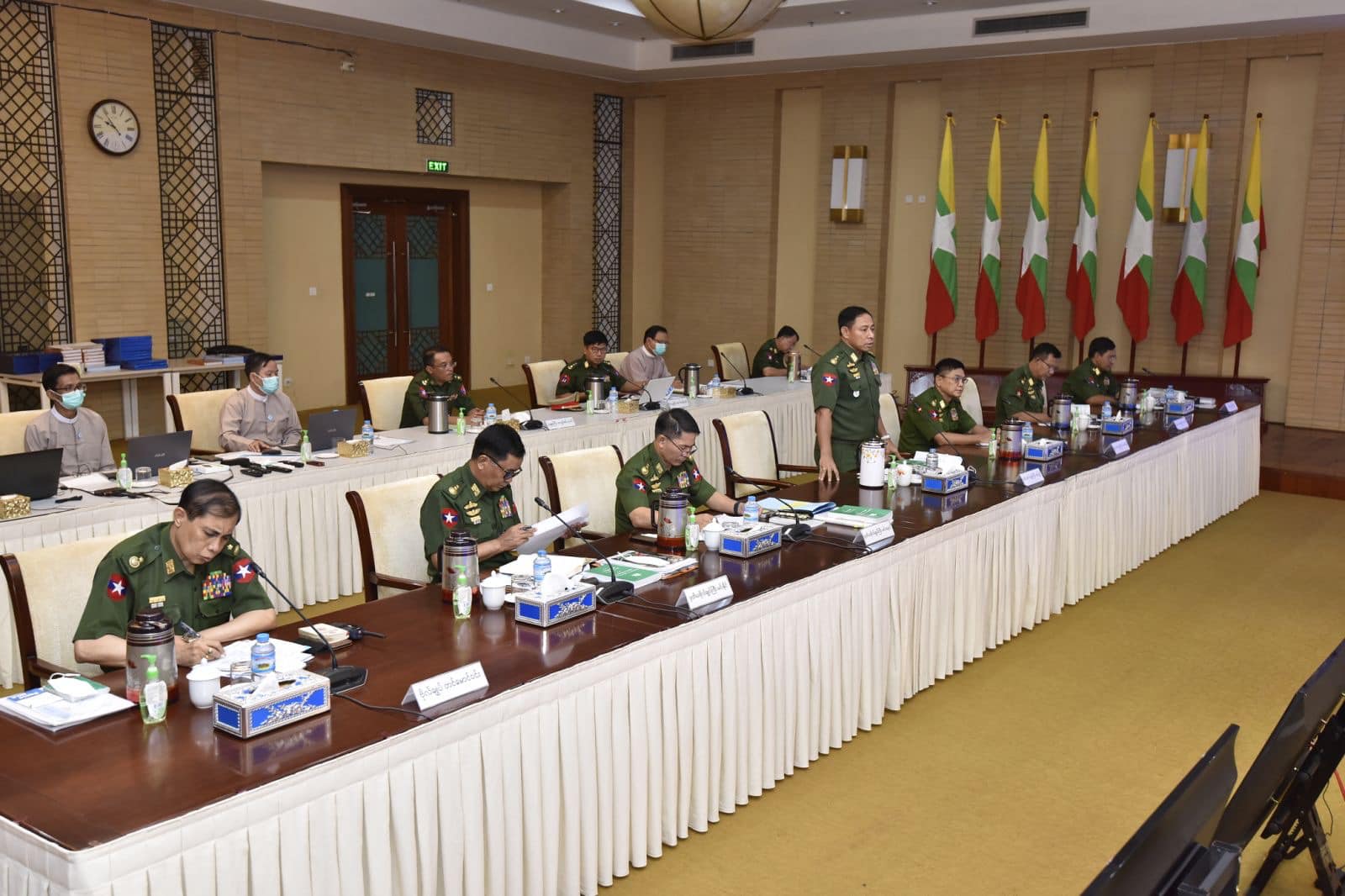
NSPNC delegation seen during a meeting
Ethnic political parties and politicians are currently highlighting the need to amend Section 261, which grants the President direct authority to appoint Chief Ministers of Regions and States.
During the administration of President Thein Sein, led by the USDP, the NLD discussed amending Article 261, but the military and USDP objected. Later, under the government led by the NLD and Daw Aung San Suu Kyi, the USDP and the military supported amending Article 261, but this time the NLD opposed it.
Dr. Aye Maung, Chairman of the Arakan Front Party (AFP), told CNI News that it is difficult to claim that the President’s direct appointment of Chief Ministers is democratic or federal in nature.
He said “Federalism relates to autonomy — having self-governing powers and the authority to make one’s own decisions. In a democratic process, people would accept a Chief Minister nominated by the majority of representatives elected by the people of that state or region.
Ideally, the most correct approach is where the people directly elect the Chief Minister of their State or Region. That is direct democracy. If that is not possible, then the parliament — elected representatives — should select a person, and the President simply confirms that nomination. That is more federal. But if the President directly selects and appoints the Chief Minister, it is hard to say that it is democratic or federal.”
Myanmar has 14 Regions and States, and according to Section 261 of the 2008 Constitution, the President has the authority to directly select and appoint the 14 Chief Ministers.

political parties’ working committee
This provision contradicts the desire of ethnic political parties and ethnic communities who want the Chief Minister to be appointed from the party that wins the majority in their respective regions. It also does not provide guarantees for equality and the establishment of a federal union.
Chairman U Ko Ko Gyi of the People’s Party (PP) told CNI News that discussions on amending Section 261 were confidential and that only once a new parliament emerges will constitutional amendment processes begin, depending on how the President decides.
He said “We can only speak in general terms. Because the agreed points are confidential, we cannot disclose details.Once a new parliament is formed, constitutional amendment procedures can begin. For now, we see that the existing law will continue to be applied. It depends on how the President thinks and decides.”
Discussions on amending Section 261 have taken place between the military’s National Solidarity and Peace-making Negotiation Committee (NSPNC) and political parties. However, both sides have kept the details confidential, and it is not known whether the military agrees or disagrees with amending Section 261.
Those close to the military and political parties say that if the next government emerging from the military-led election truly wants a federal Union, it should ease the President’s authority to appoint Chief Ministers in the States and Regions — even if Section 261 is not formally amended.

- By CNI
- Category: English Section
- Hits: 186
CNI News
28 December 2025
Dr. Nyo Nyo Thin, founder of the Yangon Watch group, told CNI News that despite the existence of child protection laws in Myanmar, children are being exploited and forced into labor due to the negligence of the authorities.
Common practices include renting toddlers for a day and drugging them with sleeping pills mixed in milk to use them for begging, parents themselves forcing their children to beg, and organized gangs coordinating groups of children for begging activities.
Dr. Nyo Nyo Thin stated that authorities should thoroughly investigate the children currently begging on the streets. She emphasized that the Department of Social Welfare and the General Administration Department (GAD) are responsible for taking action against child abuse.
She explained: "In reality, even if a parliament has not yet been formed, the City Development Committee in Yangon and the Department of Social Welfare in rural areas—along with the GAD—must take responsibility for this issue. Once a parliament is formed, parliamentary committees should draft special plans and work with township representatives to conduct thorough investigations in areas with high concentrations of child beggars. Exploiting children like this is a blatant violation of the law. It is human trafficking and child abuse. Action can be taken under both the Child Law and the Anti-Trafficking in Persons Law. The laws already exist; these issues persist because the administrative authorities are neglecting to enforce them. Anyone who sees this should report it. Authorities should then investigate immediately and send the child to social welfare departments if necessary, while exposing those exploiting them. Currently, I don’t even know what the women’s affairs organizations are doing."
Myanmar enacted the Anti-Trafficking in Persons Law on September 13, 2005. Legal experts point out that according to the United Nations definition of human trafficking, the current forced begging of children in Yangon constitutes a crime of human trafficking.
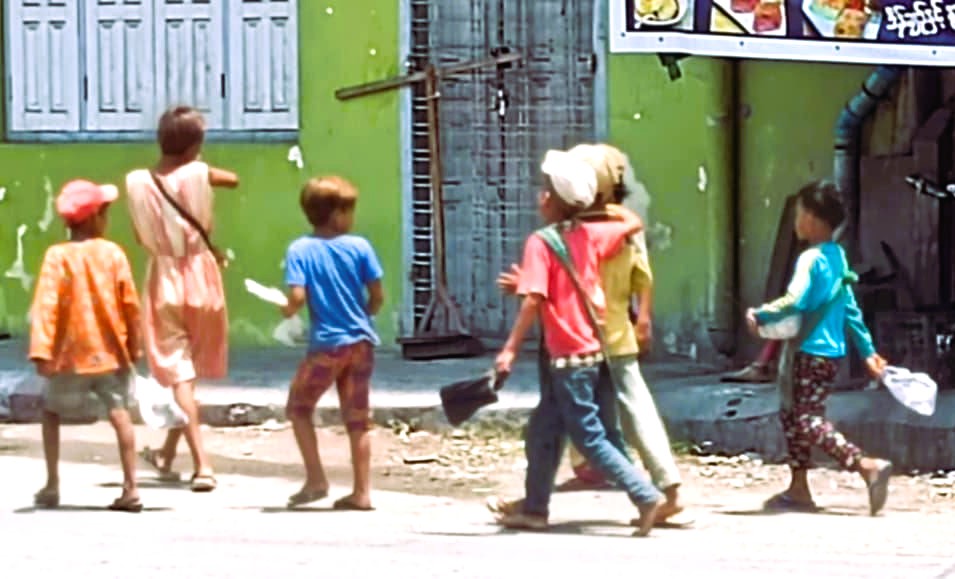
Children seen
Dr. Nyo Nyo Thin added that child abuse is a priority issue that must be addressed regardless of whether a parliament is in session, and it should not require a direct order from Senior General Min Aung Hlaing to begin work.
She continued: "There is a market for renting children, and the public knows it. We have to question why the officials responsible for taking action do not know or why they are ignoring it. These are tasks that must be done even without a parliament. This isn't something that the Ministry of Social Welfare or Women’s Affairs organizations should only start doing because Senior General Min Aung Hlaing tells them to 'go do it.' The Ministry of Social Welfare, women's groups, and township administration teams are duty-bound to act. The public should also pressure township authorities—report it via phone or post on their official social media pages when you see children in these situations."
Legal Context: Section 66, Sub-section (c) of the Child Law stipulates that: Forcing a child to beg for one's own benefit; Failing to prevent a child under one's guardianship from begging; Using a child in any way while begging; ...is punishable by up to 2 years in prison, a fine of up to 10,000 Kyats, or both.
Civil society organizations working with street children also pointed out that there should be widespread awareness campaigns to inform parents who force their children to beg that they could face these legal penalties.

- By CNI
- Category: English Section
- Hits: 180
CNI News
28 December 2025
Dr. Aung Naing Oo, a veteran Mon politician, told CNI News that the current system in Myanmar—where the central government maintains primary control over the administration of Regions and States and merely redistributes power—is a contradiction of the federal system.
He noted that the main issue is the lack of authority for Regions and States to elect their own Chief Ministers through their own local processes; instead, a system where the President and the Union Government make the selection is being practiced.
Dr. Aung Naing Oo said: "Another point is the legislative power. For example, regarding education and health, Naypyidaw (the central government) holds almost all the authority. It is a system centered at the top. Furthermore, ethnic literature matters, which should fall under the right to self-determination, cannot be implemented extensively. Then there are sectors like electricity production and trade—States do not have much authority to manage these yet. All of these are structured in a way that only the Union Government has the power to act. To put it simply, the central government has taken too much authority. This is a barrier to federalism and needs to be reformed. Another issue is fiscal distribution. We need reforms in how budget and natural resources are shared. Currently, almost all collected taxes are sent to the Union Government. Then, the Union redistributes it, deciding how much to give to which Region or State. Basically, this is a system where the Union central government holds the reins and merely doles out power. This is still the opposite of federalism. These things will need to be changed."
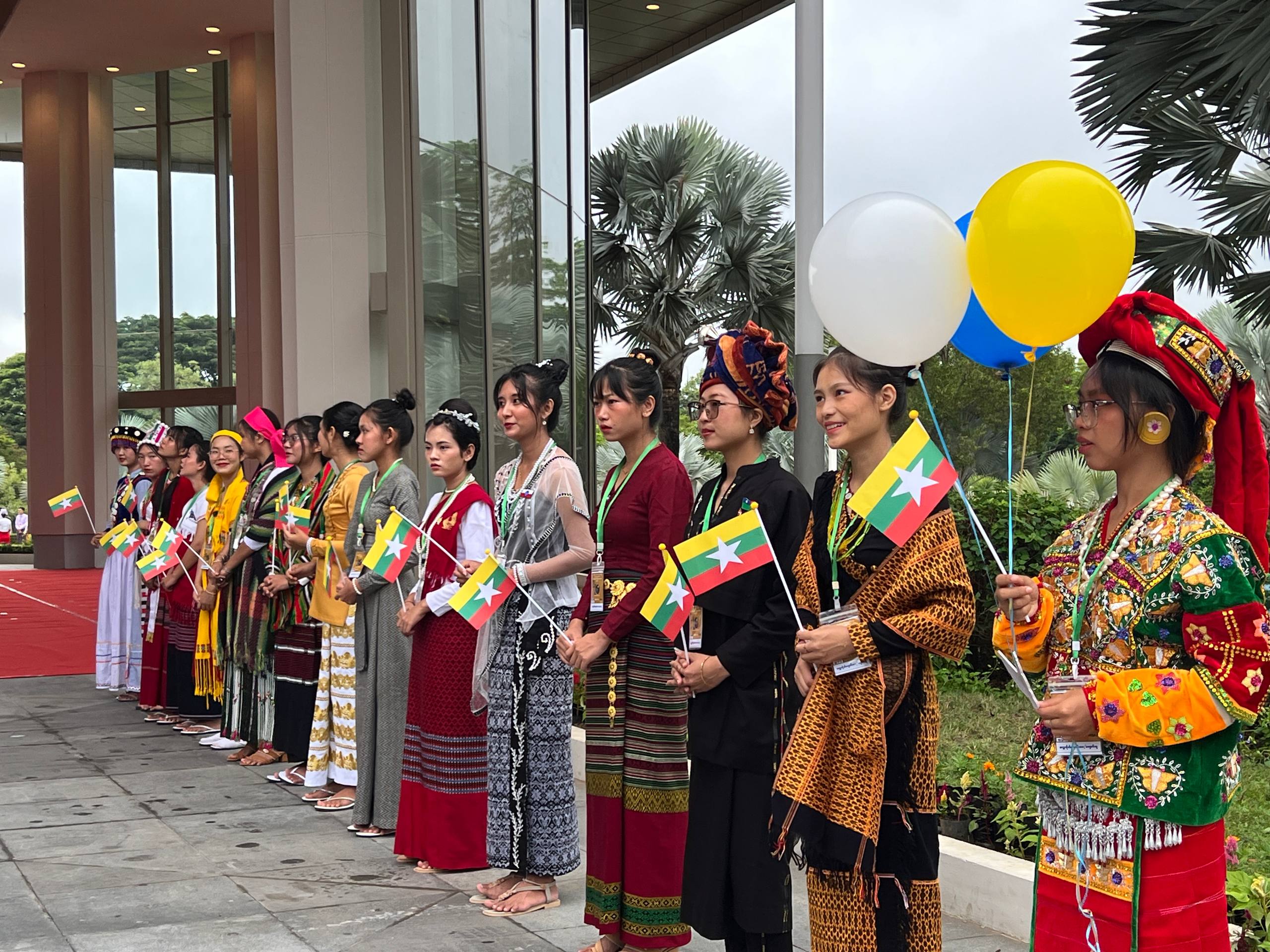
Some ethnic groups seen
A Federal Union system is a political administrative system where ethnic groups and ethnic people's representatives organize and govern together.
In a federal system, the constitution serves as an arrangement to share power between the central government and the regional/state governments. In this sharing of power, the territories (Regions and States) that make up the federal nation are constitutionally guaranteed a high degree of self-decision-making in certain policy areas, while in other policy areas, they are designed to exercise power together according to agreed-upon principles.
Therefore, a federal system means a combination of "Self-Rule" for parts of the country and "Shared Rule" for the union as a whole.
Dr. Aung Naing Oo further explained to CNI News that even when ethnic political parties win a landslide victory in their respective states, they cannot bypass the control of the central government because the central government chooses and forms the state governments.
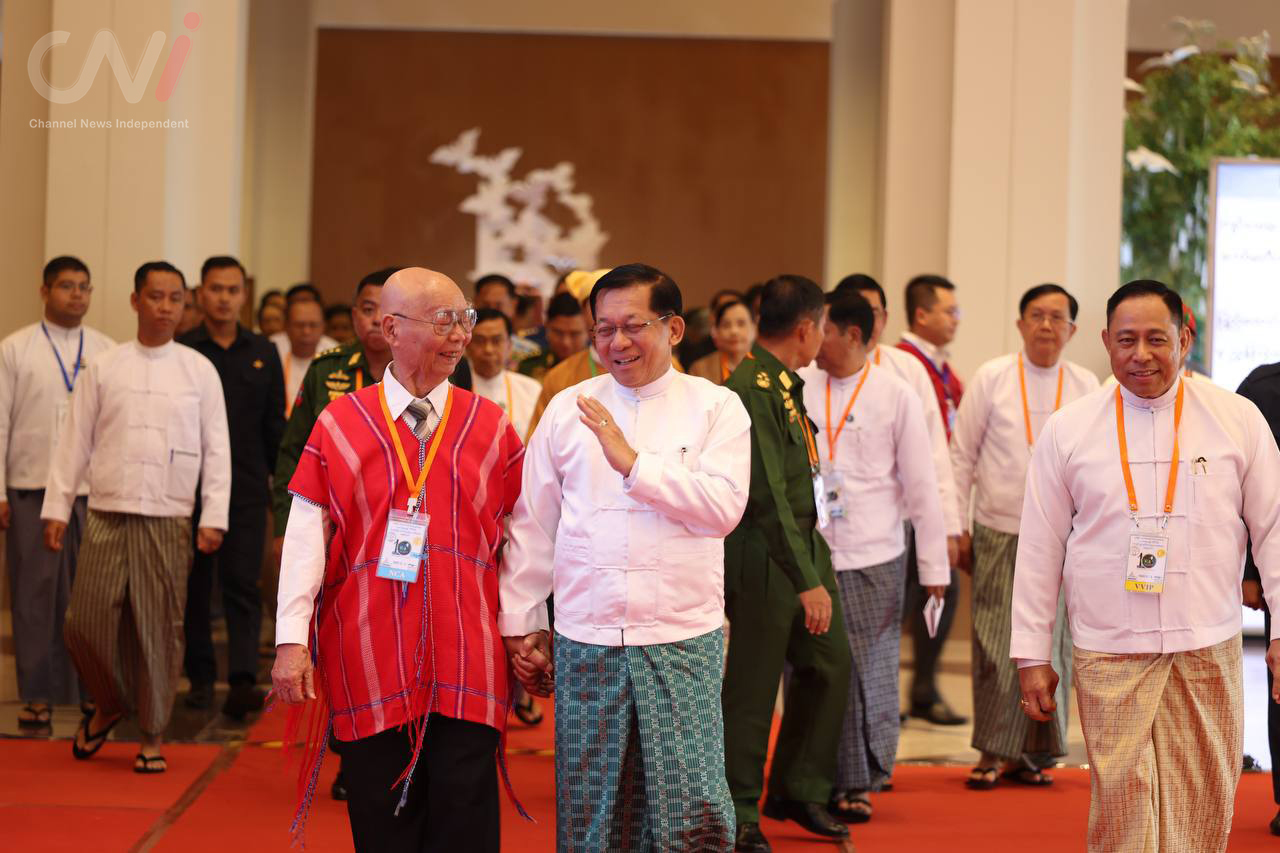
Senior General Min Aung Hlaing and Saw Mutu Say Phoe, former chairman of the KNU
He said: "If this keeps up, the hopes and expectations of ethnic people could grow significantly. For example, look at Mon State or Rakhine State. Even if a Mon-based party wins the majority of seats in parliament through an official election, they cannot yet form a state government. This is because the central government chooses the Chief Minister, so there is nothing they can do. It was the same in Rakhine. Between the 2015 and 2020 terms, Rakhine parties won the majority in the Rakhine State Parliament. But they couldn't form the government. During that period, the Union President selected a Chief Minister for Rakhine State from among the representatives. So, no matter how much you win in your State or Region, you only get seats as government members. No matter how much you struggle and try, it's a situation where you cannot escape the control of the central government."
On the other hand, Senior General Min Aung Hlaing stated during the graduation ceremony of the 26th Intake of the Defense Services Technological Academy (DSTA) on December 10, 2025, that the survival of a multi-party democratic system is crucial for the emergence of a Union based on democracy and federalism.
He mentioned that in building a Union based on democracy and federalism, it is important not to copy the models of other countries but to implement a democratic and federal system that is suited to Myanmar.

- By CNI
- Category: English Section
- Hits: 184
CNI News
27 December 2025
Residents in Momauk Township, Kachin State, report that the Kachin Independence Army (KIA) is forcibly imposing Kachin cultural and administrative identity on local Shanni ethnic villages.
In villages such as Khon Sint, Tar Sai, Myothit, Man Nawng, Hintha, Si Hut, Kon Law, and Tharli, the KIA has reportedly replaced the standard school curriculum with its own. Changes include appointing Kachin teachers, requiring students to wear Kachin traditional dress (white tops with Kachin sarongs/longyis) instead of standard uniforms, and constructing Christian religious schools where children are required to attend church.
Locals further claim that morning Buddhist prayers in schools have been banned. Traditional Shanni festivals and Buddhist holidays are reportedly prohibited, while only Christmas is allowed to be celebrated. Furthermore, national holidays such as Martyrs' Day, Independence Day, and Resistance Day have been banned in favor of KIA and Kachin-specific commemorative days.
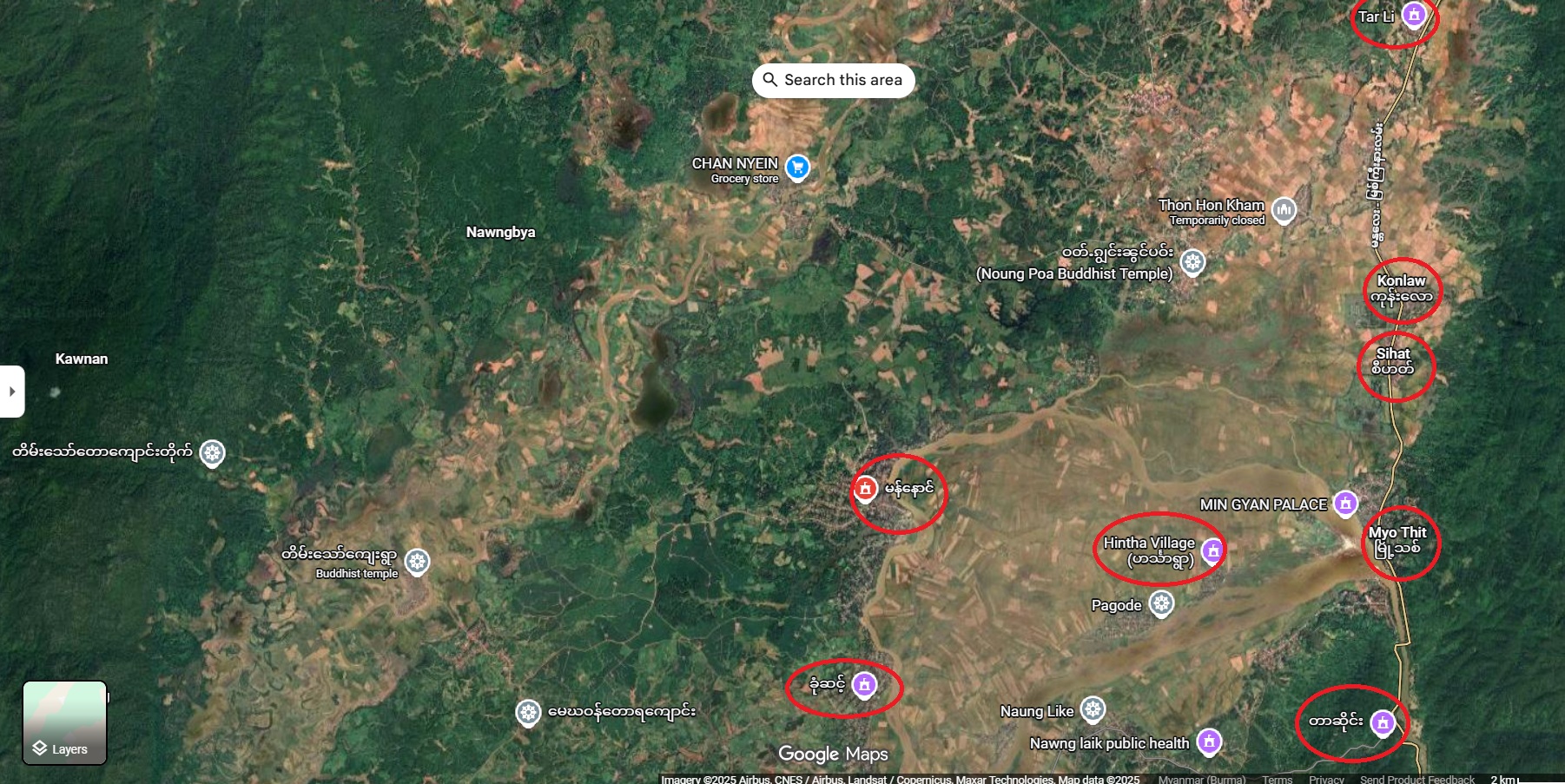
A local resident from Momauk Township stated:
"They appointed a Kachin woman as the school principal. If a school previously had 30 teachers, they replaced 15 of them with Kachin individuals. We are now forced to study the curriculum provided by the KIA. Regarding festivals, only KIA and Kachin holidays are permitted. They celebrate the KIA’s Martyrs' Day, but we are forbidden from observing the National Martyrs' Day or Independence Day. It is a process of 'Kachinization.' Some villages are even having their names changed to Kachin names. In some villages where there were previously no Kachin households, Kachin people have moved in and settled since the KIA took over administration. They are shaping these into Kachin villages and gradually erasing our Shanni traditions."
The KIA captured Momauk Township in August 2024 and currently maintains administrative control over the area.
Following the takeover, KIA civil administrative teams arrived in villages like Khon Sint, Tar Sai, Myothit, Man Nawng, Hintha, Si Hut, Kon Law, and Tharli to implement the KIA’s administrative, educational, and cultural systems.
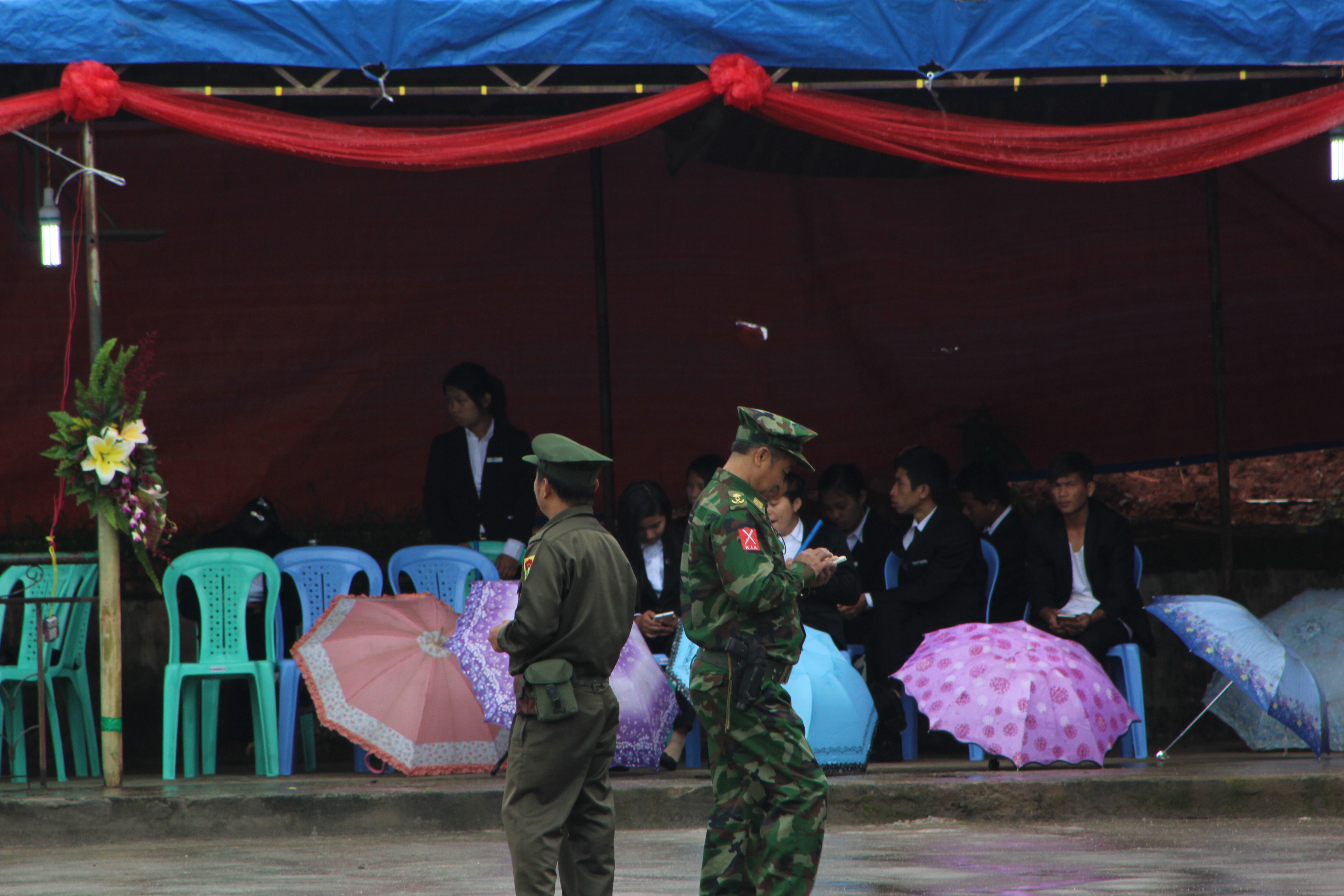
CNI News attempted to contact KIA spokesperson Colonel Naw Bu regarding these allegations, but no response has been received yet.
Currently, the KIA is expanding its controlled territory by capturing towns in Kachin State, Sagaing Region, and Northern Shan State. Additionally, it is providing arms and ammunition to other armed groups across various regions and states in an effort to overthrow the Myanmar military.



